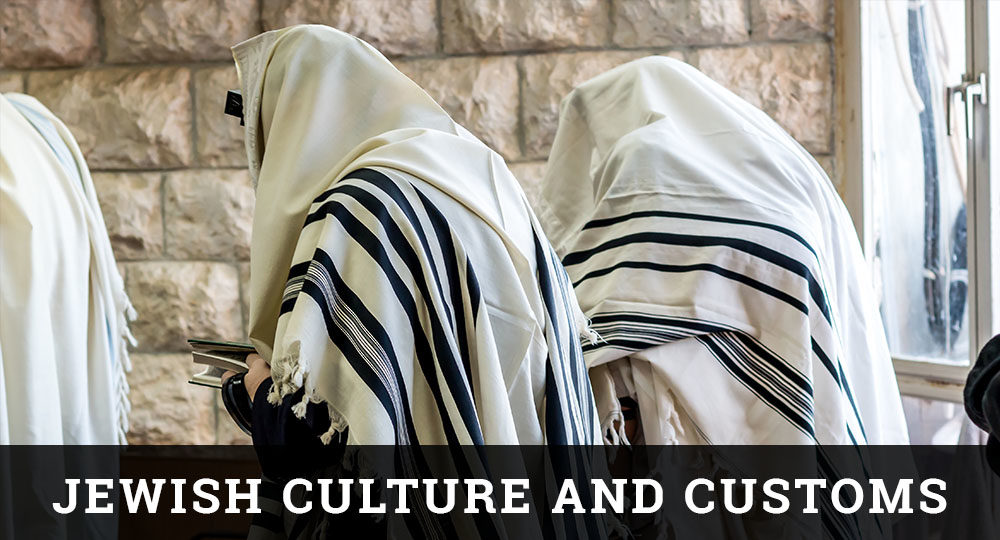When You’re Dead, You’re Dead!
A number of years ago, I attended the funeral of a dear Jewish friend named Max. I had met him through mutual friends shortly after his right side had become crippled by a stroke. During those last physically challenging years, Max and I got to know each other quite well. Although his death was not unexpected, it was, for many, a very emotional experience. He had left an impact on countless friends and business associates, and a great many came to pay their final respects.
Max was a by-product of his era. He had risen from the rampant anti-Semitism of Eastern Europe and the poverty of an immigrant to become a highly successful and greatly loved businessman. He treated everyone well, customers and employees alike.
At his funeral, many paid him tribute. As the service drew to a close, the rabbi shared some personal information about Max’s life. Then he said something I will never forget: “I do not know where Max is right now; but if there is a heaven, I know he is there, happy and rested.” The rabbi—a spiritual teacher of his people—had just confessed that he was ignorant concerning Max’s future; and most of the congregation seemed comfortable with that. As we left the service, I heard people comment on the “beautiful sermon” the rabbi had given.
Unfortunately, their reactions did not surprise me. Many Gentiles, Christians, and Muslims spend a good deal of time teaching about the afterlife. Judaism, however, does not. A common and popular idea held by many Jewish people is “deed rather than creed.” Consequently, many Jewish people resent hearing about death and dying, preferring, rather, to discuss life and living. One rabbi put it this way: “We invest more of our belief in this world (olam ha-zeh) and rely less on a world to come (olam ha-ba).”
Many Jewish people strongly believe there is no life at all after death. “When you’re dead, you’re dead,” they say. One rabbi has said, “Even as a rabbi I have never departed from my early feeling, when I die the whole world of my existence would die with me.”1 In a published sermon titled “A Jewish View of Immortality,” Rabbi Bernard Rascus wrote,
What is this immortality in which I believe? I believe that a person lives on in his or her family….I believe there is a form of immortality in the institutions we build and the causes we espouse….I believe in the immortality of friendship and helpfulness….I believe in the immortality of existence….I find immortality in my people. 2
Another great sage who lived in Jerusalem in the second century stated, “A man will live on through his children.”3 Others believe their immortality comes through their deeds, as this Talmudic story explains:
A hungry fox was eyeing some luscious fruit in a garden, but to his dismay he could find no way to enter. At last he discovered an opening through which, he thought, if I fast three days I will be able to squeeze through. He did so; and he now feasted to his heart’s delight on the grapes and all the other good things in the orchard. But lo! When he wanted to escape before the owner of the garden would find him, he discovered to his great distress that the opening had again become too small for him. Poor animal! Again he had to fast three days, and as he escaped, he cast a farewell glance upon the scene of his late revels saying, “O garden, charming art thou, delicious are thy fruits! But what have I now for all my labor and cunning?” So it is with man. Naked he comes into the world; naked must he leave it. After all his toil therein he carries nothing away with him except the good deeds he leaves behind.4
Such teaching has led many Jewish people to state simply, “I will live on through my family’s memory of me.” Though that thought may comfort some, it scarcely approaches the true hope found in the Bible and echoed by the voice of traditional Judaism.
In fact, the Amidah, a standard prayer recited in synagogues the world over, asserts, “God keeps faith with those who lie in the dust and will, according to his mercy, raise the dead, restore them bodily, and grant them eternal life.”5 This prayer was written by Rabbi Moses BenMaimon (Maimonides), the 12thcentury Jewish philosopher and physician whose immense contribution to Judaism included the Thirteen Articles of Faith that many Orthodox Jews still adhere to today. In addition, the Talmud teaches that “all Israel has a portion in the world-to-come.”6
Indeed, some Jewish people believe in a future resurrection. They believe it will occur when Messiah comes. Then all Jewish people will be brought back to Eretz Yisrael, the land of Israel. Some Hassidim (ultra-Orthodox) say resurrection is not a one-time event. Instead, it is a process called gilful neshamot, the turning, or rolling, of souls.7 They believe “the souls of the righteous are reborn in the process of tikkun olam, the mending of the world.”8 Such a belief tries to answer questions about injustice in the world and states that tikkun olam cleanses the soul.
Reincarnation is alien to most Jewish people. Their most commonly held belief is that good deeds will lead to a place called Gan Eden (Garden of Eden, not where Adam and Eve were but a place of spiritual perfection); and continual evil will lead to Gehinnom, or hell. Both are found in the Talmud. Gan Eden is where the righteous will sit at golden tables on stools of gold, participating in lavish banquets.9 It has been described like this: “Tables and candlesticks, thrones and crowns were there to be seen . . . they were there for the souls that were pure and clean.”10
Gehinnom (also called Gehenna) is a place so awful that a single day there feels like an eternity. That is why the great Rabbi Akiba (A.D. 50–135) said the judgment of the wicked there “shall endure [only] twelve months.”11 “If one day was like an eternity, one year will be unbearable.”12
Although much Jewish thinking focuses on rabbinic thought, we need to see what the Jewish Bible actually teaches. The Torah (five Books of Moses) uses the expression “gathered to his people” for such personages as Abraham (Gen. 25:8), Ishmael (Gen. 25:17), Isaac (Gen. 35:29), Jacob (Gen. 49:33), and Moses and Aaron (Dt. 32:50). Conversely, the sinner is “cut off from his people.” This punishment is referred to as kareit (literally, “cutting off,” but usually translated “spiritual excision”), meaning the soul loses its portion in the world to come.13
The word Sheol is used in numerous passages in the Hebrew Bible to describe the abode of the dead. Sheol literally means “the grave”; and from an earthly perspective, that is what it is. Yet from God’s perspective, it describes a place of sorrow.14
In addition, the Hebrew Scriptures tell of two people whom God took alive from the earth: Enoch, who “walked with God, and he was not” (Gen. 5:24); and Elijah, who “went up by a whirlwind into heaven” in a chariot of fire (2 Ki. 2:11).
The book of Daniel provides further insight on the afterlife: “And many of those who sleep [are dead] in the dust of the earth shall awake, some to everlasting life, and some to shame and everlasting contempt” (Dan. 12:2). Daniel does not name the two places he clearly describes as heaven and hell. It is evident, however, that the first location is preferred over the second. The people there have risen from the dead to receive everlasting life, as further understood by the word awake (conscience), which follows the word sleep (death).
The prophet Isaiah said,
Thy dead men shall live, together with my dead body shall they arise. Awake and sing, ye that dwell in dust; for thy dew is like the dew of herbs, and the earth shall cast out the dead (Isa. 26:19).
Isaiah makes it clear that a future exists for those who have perished. Job, a contemporary of Abraham, also had a steadfast hope beyond this life when he said, “And though after my skin worms destroy this body, yet in my flesh shall I see God” (Job 19:26). Clearly, biblical Judaism holds to a strong doctrine of a defined afterlife.
I left Max’s funeral with mixed emotions. I felt sad that so many educated, gifted people seemed satisfied with their uncertainty concerning life beyond the grave. I also felt sorry for the rabbi, who, for all his knowledge, could offer so little encouragement to the family.
On the other hand, I had a genuine sense of joy. You see, I knew something the rabbi did not know. I knew that Max had trusted Jesus as his Messiah. Max knew where his new home would be when death claimed his body. He had tried to tell people about his life-transforming decision and the hope he had in his heart. In fact, many of the people who attended his funeral had received a telephone call from him, telling them of his relationship with Jesus. But most, if not all of them, did not believe it. They thought the stroke had affected his mind.
But I knew differently. There was nothing wrong with Max’s mind. Max had told me that he had searched a long time to find the answers about life after death. Much of that search was conducted within Judaism. I am privileged to possess many of the Jewish books he looked to for help. But it wasn’t until two former employees, both faithful, Bible-believing women, opened the pages of the Hebrew Bible with him that he knew he had found the truth.
So, while many still say, “when you’re dead, you’re dead,” those of us who believe God’s Word joyously echo Paul in Philippians 1:21: “For to me to live is Christ, and to die is gain.” I know Max agrees.








This literally resonates with me because I was born Ashkenazy, Jew and a half catholic.